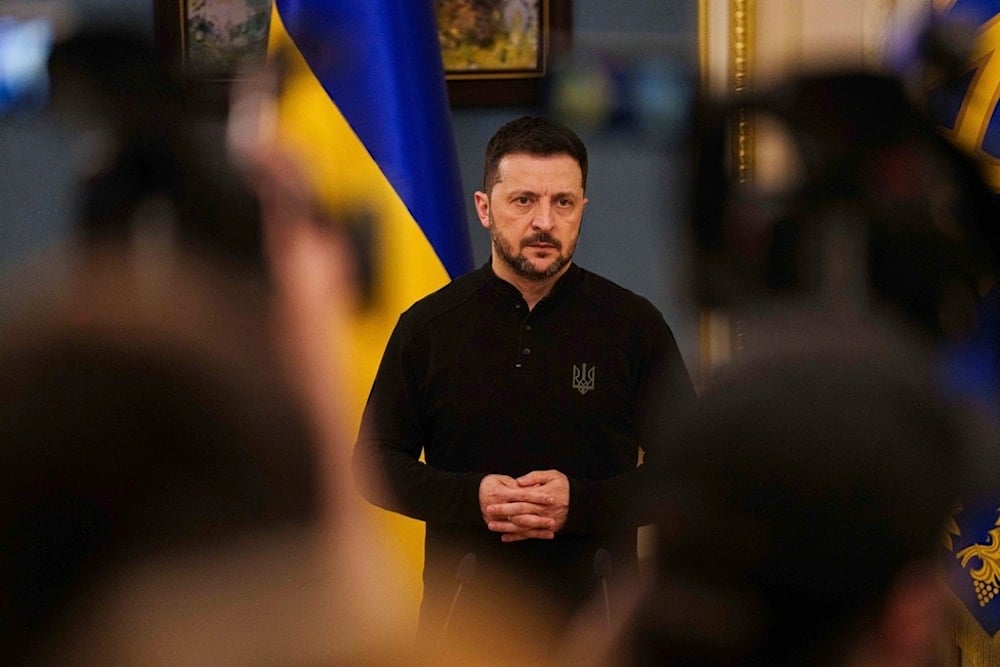Zelensky slams US embassy for failing to name Russia in missile attack
Russia on Friday claimed responsibility for the strike in Kryvyi Rih, but argued it was a military operation targeting a meeting of Ukrainian officers and Western instructors.
-

Ukrainian President Volodymyr Zelenskyy speaks during a press conference in Kiev, Ukraine, Friday, April 4, 2025 (AP Photo/Evgeniy Maloletka)
Ukrainian President Volodymyr Zelensky has publicly denounced the US Embassy in Kiev for issuing what he called an alarmingly weak statement following a deadly missile strike in Kryvyi Rih—his hometown—that left 18 civilians dead, including nine children.
The strike, which took place on Friday evening, hit a residential area in central Ukraine. According to Zelensky, 62 others were injured. Despite the scale of the tragedy, the US response avoided holding Russia explicitly responsible.
"Such a strong country, such a strong people — and such a weak reaction," Zelensky wrote on social media. "They are even afraid to say the word 'Russian' when talking about the missile that killed the children."
The US Ambassador to Ukraine, Bridget Brink, posted: "Horrified that tonight a ballistic missile struck near a playground and restaurant in (Kryvyi Rih). More than 50 people injured and 16 killed, including 6 children. This is why the war must end." The absence of the word "Russia" sparked widespread backlash online and in Ukrainian circles, with many accusing the US of sanitizing its language in favor of diplomatic flexibility.
Brink, appointed under President Joe Biden, had previously been more direct in assigning blame to Russia. Her recent posts, however, have avoided naming Moscow—particularly since a reported clash between Zelensky and US President Donald Trump during a February meeting in Washington. Since then, the US tone has notably shifted, coinciding with Trump's push for a limited ceasefire and his broader aim to rebuild ties with Moscow.
Read more: Over half of Ukrainians worry Trump push for peace may be unfair: Poll
Russia on Friday claimed responsibility for the strike in Kryvyi Rih, but argued it was a military operation targeting a meeting of Ukrainian officers and Western instructors. According to the Russian statement, up to 85 individuals were killed, including foreign operatives, and military equipment was destroyed. Moscow described the location as a logistical node linked to NATO coordination.
The strike coincided with plans to advance the deployment of a NATO-led "reassurance force" involving up to 25,000 troops—a development that has sparked alarm in Moscow and stirred debate in European capitals. For Ukraine, however, this increased military integration with NATO appears to be coming at a cost: its Western allies' rhetoric is growing more cautious, more calculated, and—at least in Zelensky's view—more complicit.

 3 Min Read
3 Min Read











